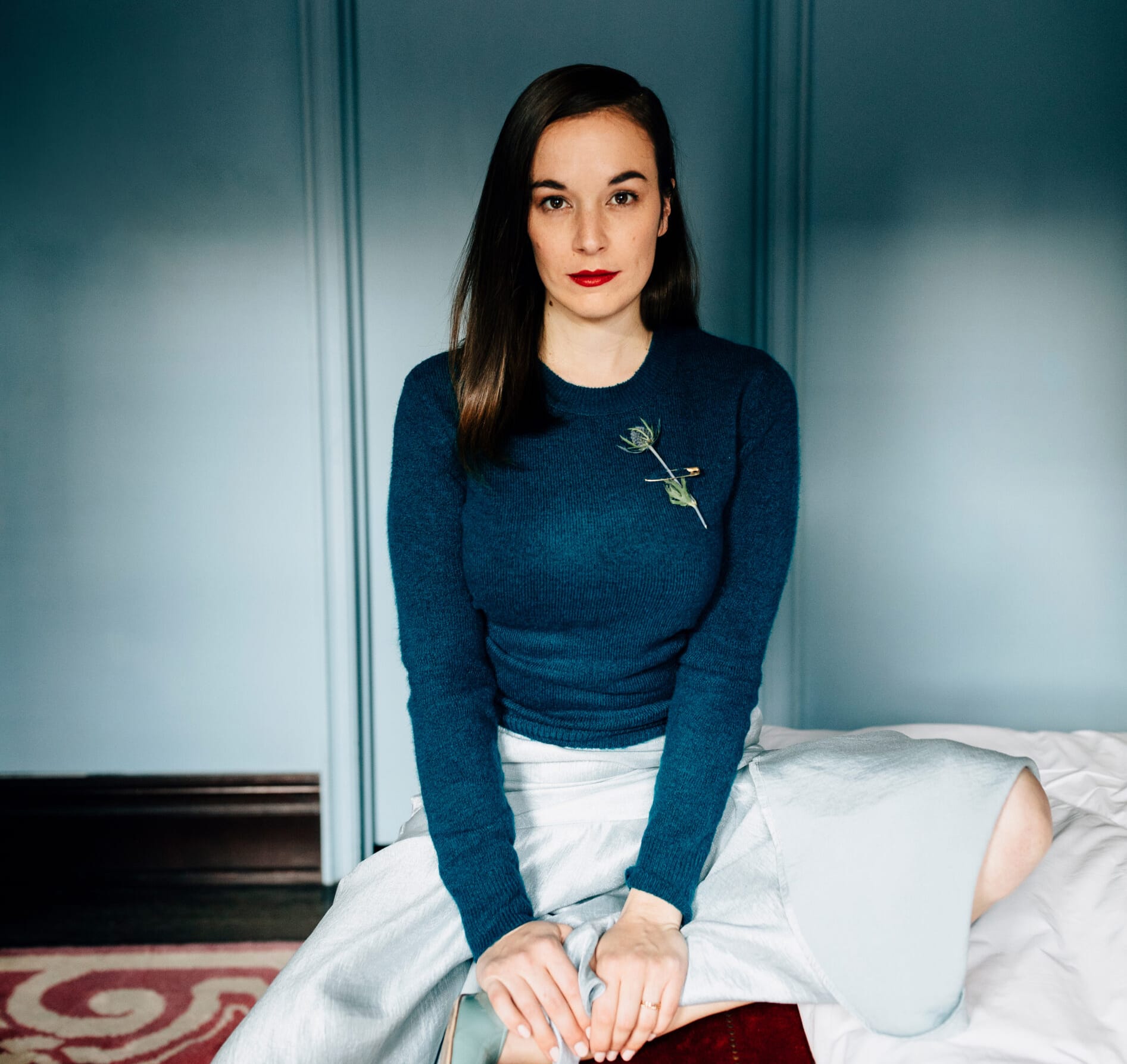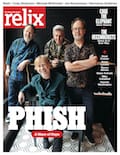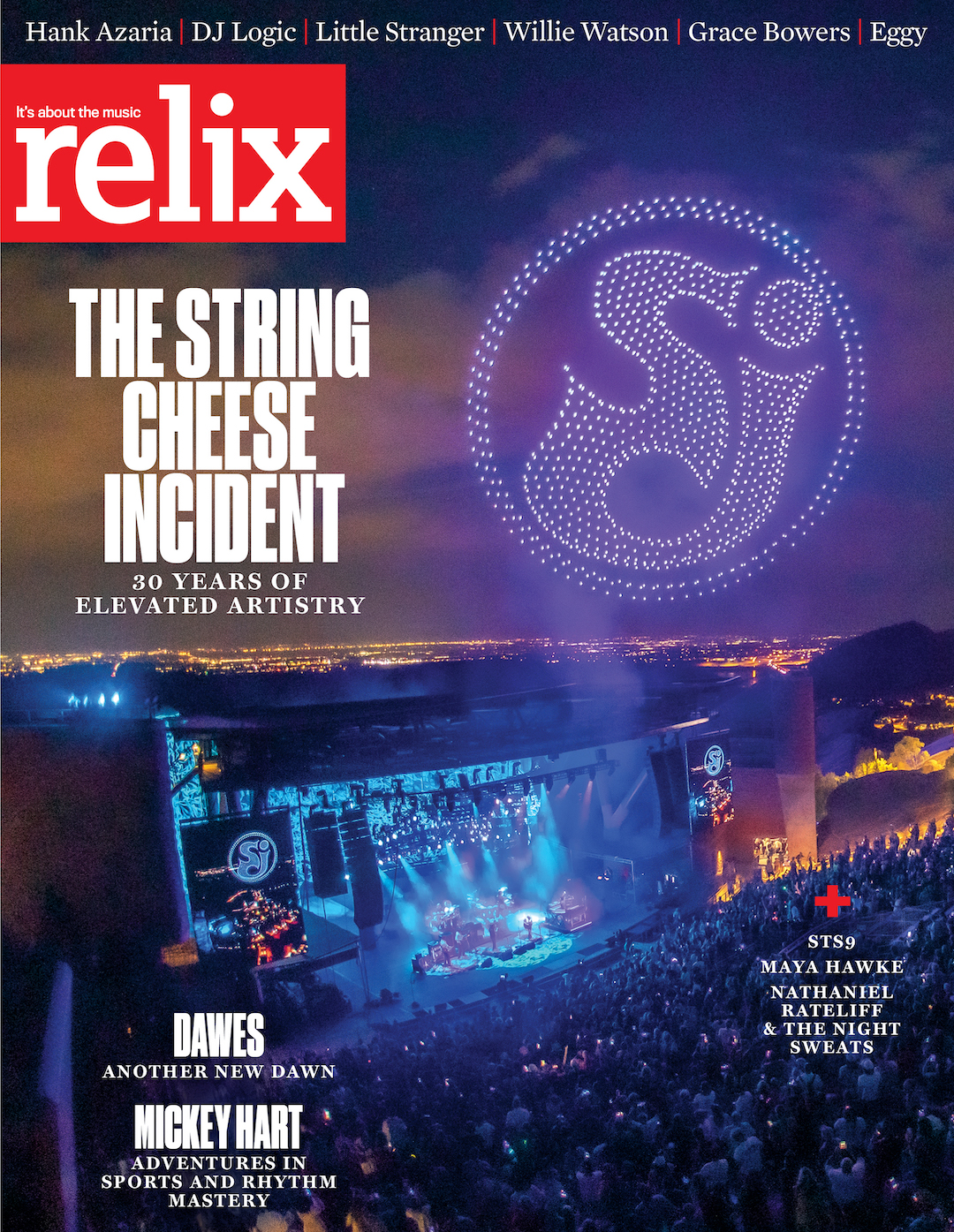Spotlight: Margaret Glaspy

Photo: Josh Goleman
**
Margaret Glaspy faced a dilemma as she set out to make her third full-length album. “Personally, I don’t really enjoy hanging out in the studio,” she says. “That’s not the way that I like to make records. I’ve made records in LA, and in LA, everyone’s hanging out—they’re getting a juice, they’re philosophizing. I don’t want to be in the studio a minute longer than I need to be.”
Solving the issue of draggedout sessions was simple. Although Glaspy was born and raised in California and has done most of her previous recording in her home state, the New Jersey transplant decided to book time at New York’s Reservoir Studios, where she could concentrate on the task at hand. Once there, she rounded up bassist Chris Morrissey— who has worked with Andrew Bird, Lucius and Ben Kweller— and The Bad Plus drummer Dave King and then got to work.
“In New York, you’re on the clock,” Glaspy explains. “You get in; you get out. I prefer that style.”
Co-producing with her husband, jazz guitarist Julian Lage—whose most recent albums, View With a Room and The Layers, she sat at the helm for—Glaspy cut 14 selfcomposed tracks in three days, 10 of which landed on the album, titled Echo the Diamond. The only additional musician on the album, which was released by ATO in August, is a keyboardist, Tyler Chester, who appears on one song.
Although Glaspy kept the sessions trim, the music is robust and rich with imagery; there’s a rawness and directness embedded in the songs, which gain authority from the stripped-down recording approach. While she arrived with a potency on her prior albums, Emotions and Math (2016) and Devotion (2020), augmented by a string of EPs and singles, Echo the Diamond is where Glaspy—who sings and plays guitar—finds her way for real. “I was feeling so many different things,” she says, talking about the period during which she created the music. “I’d gone through a lot personally.
I was experiencing a lot of grief, but I was experiencing a lot of joy at the same time. I had gotten married in that time. I had moved. I rediscovered music on my own terms again, and fell in love with the guitar all over again. Music started to take care of me in a big way and showed me why I was interested in it in the first place.”
As with virtually every artist whose life plays out largely on the road, Glaspy experienced life-changing emotions during the peak of the pandemic. Being locked down forced her to reassess where she was going artistically.
“When you’re on tour a lot, you start to almost disconnect more,” she says. “It’s ironic because you’re out there doing it every night and there’s this rinse and repeat feeling. But if you do it a little too much, you start to feel a little numb. There was kind of an effortless catharsis. This record happened because it needed to.”
Each of the songs on Echo the Diamond—whose title is derived from a conversation Glaspy and Lage had about something the late martial artist Bruce Lee said—reveals multiple threads of meaning when one unpacks what Glaspy is singing about, but the tunes also stand on their own without requiring much work from the listener. We can thank the unadorned production for allowing that.
The album doesn’t waste any time before making a statement—the back-to-back opening tracks, “Act Natural” and “Get Back,” are powerpacked riff-rockers illuminating words that invite consideration. “I’ve been a witness to forgiveness in the worst of weather/ But never have I ever seen someone so free/ You’re such a mystery to me,” Glaspy sings on the opener, while “Get Back” offers the chorus, “Get back to the place you started from/ Get back to childhood, get back to what’s good,” amid a series of reflections laying out how the narrator got to this place.
Another highlight is the anthemic “Female Brain,” perhaps the first song ever whose opening line is “Don’t be a dick.”
Glaspy explains, “That one is pretty personal, of being on the road for a long time and having unsavory experiences with men. When women play guitars, there’s something that makes people upset. It’s never my first conclusion and never my first assumption because I don’t want it to be true, but I’ve just experienced it enough that I go, ‘OK, this is happening now, unfortunately.’ At the same time, I have such an incredible community of guitar players and musicians of all genders, all backgrounds, etc., that support me and have been there for me a thousand percent. So it’s a total mixed bag.”
Elsewhere, ballads such as “Memories,” “Turn the Engine” and the album-closing “People Who Talk”—which includes the concluding line “People who talk don’t say a thing”—explore Glaspy’s thoughts and experiences with less volume but just as much impact. “A lot of the songs could have come out in a way that was a little harder or with a little more ruckus, but they started to air on a certain side and they ended up that way,” she says.
At the time of this interview, Glaspy had just returned from Europe and was eager to present her new material to American audiences. “What I’ve learned in so many facets of my life is that you try and shoot for the moon and you land in the stars,” she says. “That’s what I’m trying to do and, hopefully, there are reflections of that which touch people’s lives. I think I’ve been a beneficiary of listening to music that reflects real life at different times in my life. If I can make anybody feel a little less alone by letting them know that I’m real life, too and that the pain and the joys of life are real, then that makes me feel like I’ve done my job on some level.




















